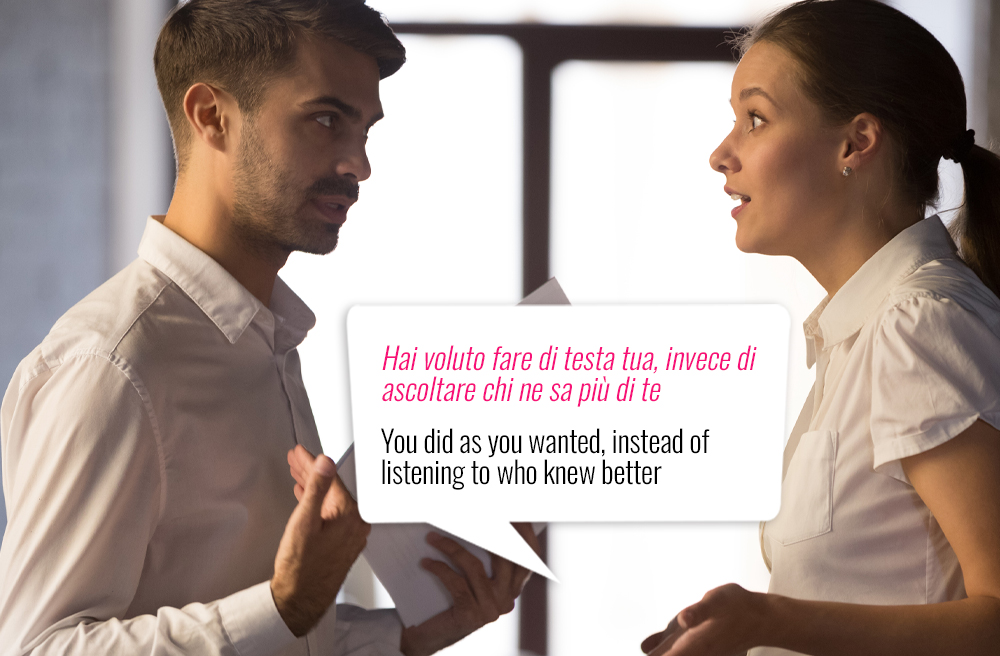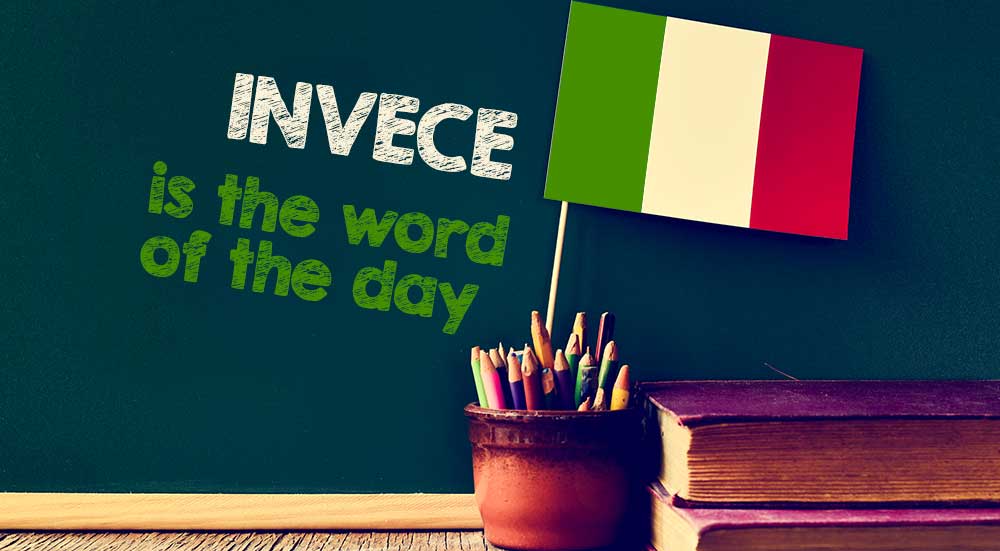Today’s word, invece (een-vai-tchai) is the union of two terms, in and vece and we started using it sometimes in the 18th century as a single word, but its use was common before, but as a locution, with examples found even in Dante’s work. In English, we can translate it with a variety of terms or locutions, including instead, on the contrary, conversely, and even on the other hand.
Invece is very common and you can find it in a variety of contexts and in all registers. It is almost always followed by the preposition di, just like instead is followed by “of:” dovresti studiare, invece di guardare la TV (“you should study, instead of watching TV”).

Sometimes, you can use invece to show you need or want to do the opposite of what others are doing, as in tutti hanno scelto di supportare la sua idea. Io, invece, l’ho rifiutata categoricamente (“Everyone decided to support his idea. I, on the contrary, categorically refused”). You can also translate it as on the other hand: hai scelto il maglione blu mentre io, invece, ho preferito quello rosso (“You picked the blue jumper, while I, on the other hand, have chosen the red one”).

Whichever nuance you give to your invece, and whichever translation you prefer, rest assured: there is always a choice involved with it!
– Invece di mandare messaggi, perché non mandi un vocale?
– Why don’t you send a voice message instead of a text?
– Io ho fatto il Liceo Classico, invece lui lo Scientifico.
– I attended Liceo Classico, he, on the other hand, attended Liceo Scientifico
– Hai voluto fare di testa tua, invece di ascoltare chi ne sa più di te
– You did as you wanted, instead of listening to who knew better.




























